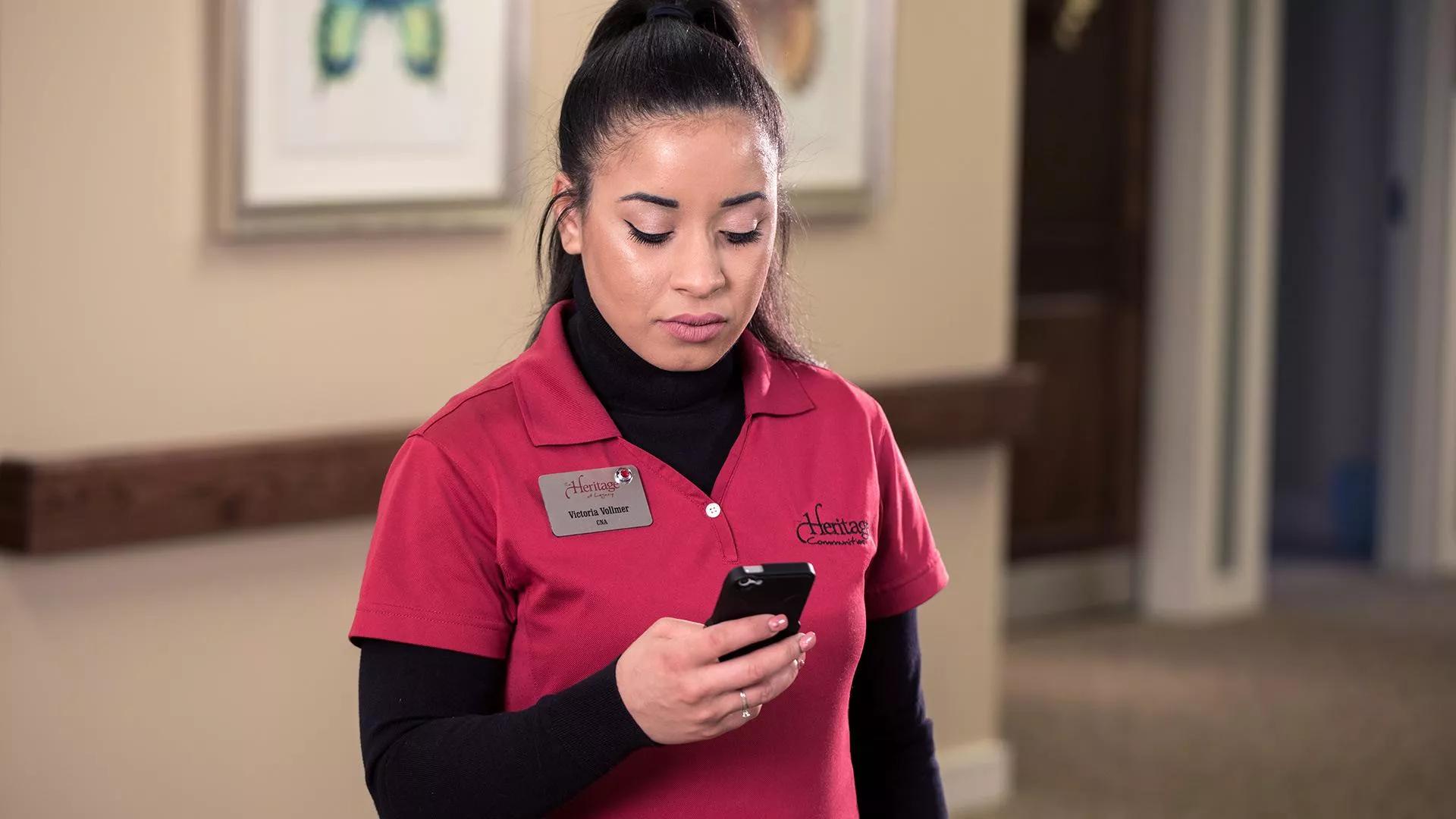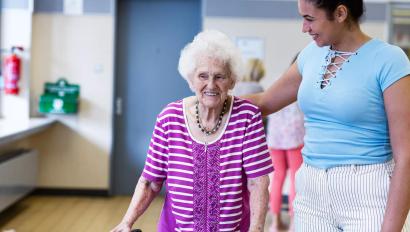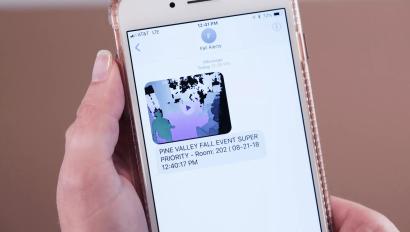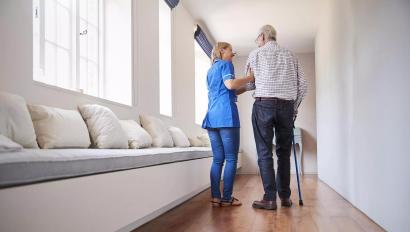Empower On-The-Go Care With Mobile

Make mobile, empowered caregivers a reality with one proven tool: a smartphone mobile application.
Think about the amount of time your care staff spends tied to the nursing station. Do you wish more of that time could be spent caring for residents? Communities have faced this problem for quite some time, and in the midst of the pandemic, many are left with even less staff and less time available. With the ongoing need for increased health monitoring and record keeping, workflows need to transition to be on-the-go.
Fortunately, there is a proven tool available to make mobile, empowered caregivers a reality – and one that you likely use in your personal life many times a day: a smartphone mobile application. If you’re still relying on pagers and radios to respond to resident calls and coordinate care, take a moment to review the intuitive features of an app that provide caregivers with visibility into all relevant alarms, their status and who is responding. Simply put, they help drive caring to the next level:
Better Communication, More Timely Care
In a recent study of the use of nurse call systems, researchers found that caregiver response to an emergency call can take up to 20 minutes. Many times, caregivers are currently assisting a resident when they receive an additional call, and the lack of an easy way to communicate with colleagues makes it difficult to find a backup. The study found that some calls were never responded to, simply because the caregiver was overwhelmed.
Mobile applications bridge this communication gap, enabling easy communication across caregivers via your Wi-Fi network to prevent delays in resident assistance. Caregivers can communicate via voice or text directly with peers for instant coordination of care, without having to leave the task at hand.
Enhanced Condition Reporting
Constantly on-the-go, caregivers often find it challenging to document all aspects of the care provided for effective transition between shifts. It’s not unusual for a caregiver to enter updates into the EHR system after hours or during breaks, relying on their memory of what occurred.
A mobile app helps to ensure that important details never go undocumented. Caregivers are able to document resident conditions and care provided in the app directly after responding to the event, ensuring all resident data is captured properly. This data can then be turned into useful reports and dashboards for enhanced care planning.
Increased Visibility into Alarms
Alarm fatigue is a well-documented issue right across healthcare. A multitude of visual and audible alarms all at once – which is not uncommon in the morning hours as residents start their day —has been shown to cause confusion and stress among staff.
Eliminate alarm fatigue by receiving detailed alerts and warnings from residents and safety systems in your community directly to a mobile device. Whether there are critical system concerns like low battery or system down, security alerts such as door ajar, or resident concerns like dressing, elopement or a fall, care staff have the visibility to prioritize and respond immediately and effectively.
According to the study approximately 34,000 fatal, life-threatening or serious adverse events per year occur in nursing homes, and most are considered to be preventable. A major contribution to this number is the lack of communication policies in place between staff. A call system is critical to call attention to these adverse events, and the addition of a mobile app ensures caregivers can provide faster, more effective responses – and deliver better care. It’s time to transform your care workflows with a mobile app.
























